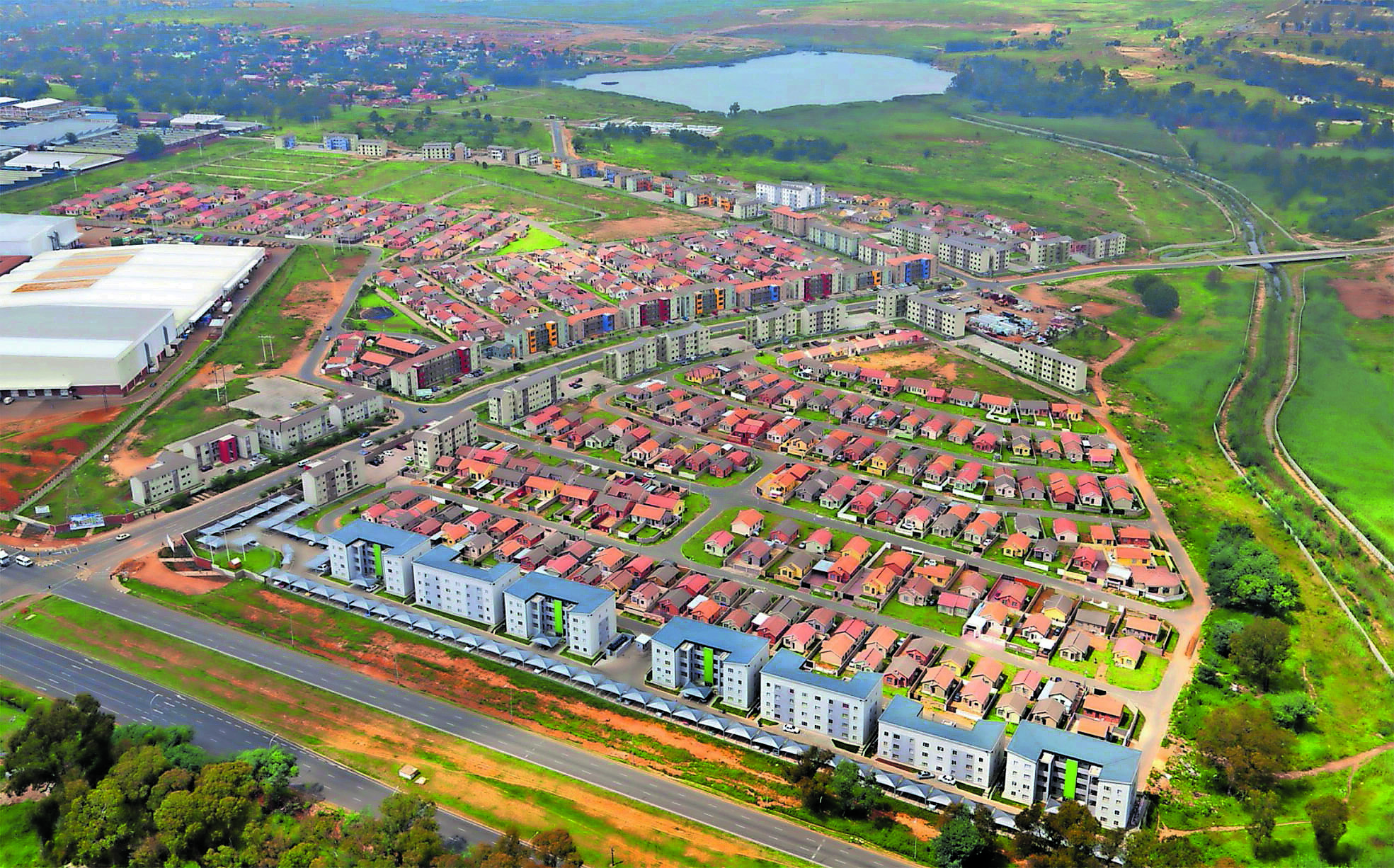There are 31 Mega Human Settlements planned for Gauteng in the next five years that will substantially reduce the housing backlog in the province. (Photos: GCIS & Supplied)
Regional summits hosted by the Gauteng department of human settlements have led to an agreement to work together between communities and government. The summits were held in the Johannesburg, Tshwane, Sedibeng, West Rand and Ekurhuleni regions,
Kick-started in the Johannesburg region, which was marred by service delivery protests in the South, the summits — hosted by MEC for Cooperative Governance and Traditional Affairs and Human Settlements Dikgang Moiloa — saw hundreds of people arrive at various venues.
The rollout of serviced stands dominated the debate between communities and government in all the five regional summits.
Moiloa said the department was working with colleagues in the executive council, municipalities and partners to identify land in the ownership of the state and private sector.
“This is to ensure that a rapid realisation of the premier and executive council’s commitment to ensuring that those who qualify and need serviced land to build their own houses should be given an opportunity to do so,” he said.
Moiloa said that the process of real restitution of land to the dispossessed has begun in earnest and soon we will all see decisive action to expropriate the land without compensation, for public interest and the greater welfare of society.
“Furthermore, the Gauteng provincial government (GPG) has taken a stance to ensure that 10% of the Human Settlements Development Grant is to be implemented through Alternative Building Technologies (ABT) starting from this financial year. This initiative is part of the GPG’s TMR (transformation, modernisation and reindustrialisation) strategy for human settlements and the overall built environment,” said the MEC.
Another issue that was highly debated in the summits is that of Business Forums and the 30% allocation of work to local contractors in human settlements projects.
Moiloa said that the words “Business Forum” had negative connotations, as they were synonymous with the stoppage of projects and violence. He criticised those who demanded 30% of the project price without doing any work.
“We support the law that says capable and qualified local contractors should be empowered by being given 30% of the work and be paid for it — not the hooligans who just demand money without working for it,” he said.
Moiloa said that the department was working close with law enforcement agencies as part of ensuring criminal elements are rooted out of communities when it comes to project stoppages.
At the conclusion of each regional summit a pledge was made by the government and the communities on how to address challenges faced by the people of the region.
The summits were attended by community leaders and political parties from the regions, as well as the different municipality representatives in the regions where they were hosted.

Mining houses release land for housing development
31 Mega Human Settlements planned for Gauteng to reduced housing backlog
Gopolang Leepile
Mining houses have released parts of their own land for the construction of new human settlements in the West Rand.
This was said by Gauteng premier David Makhura during his fifth state of the province address at Alberton Civic Centre in Ekurhuleni. He said that the provincial government is working with the national government and leaders of the mining and agri-business sector to build an agro-industrial cluster in the West Rand.
“I welcome the decision by the mining houses to release their own land for agro-industrial development and construction of new human settlements,” said Makhura.
The decision by mining houses to release land for the development of human settlements coincides with the provincial government’s core mandate of bringing in the private sector partners to construct new post-apartheid Mega Human Settlements.
“Already, there are 31 Mega Human Settlements planned for our province in the next five years — 10 are already under construction, 11 are in detailed planning and the remaining 10 are at a conceptual stage,” said Makhura.
But he did acknowledge the housing backlog in the province, and said it was due to rapid urbanisation and the high rate of immigration.
“These Mega Human Settlement projects will contribute significantly to reducing the housing backlog. They are building sustainable, inclusive and integrated community accommodation, which will proide a full range of social and economic opportunities,” said Makhura.
He said that the provincially driven Rapid Land Release was a major policy shift to be introduced by government. “This programme is about making land available to South Africans who want to build houses for themselves and set up their own enterprises. This shift has been embraced by President Ramaphosa in his 2019 state of the nation Address.”
So far, the provincial government has already implemented the Rapid Land Release Programme working jointly with the City of Ekurhuleni and has received positive reviews, with thousands waiting in anticipation for land to be released.